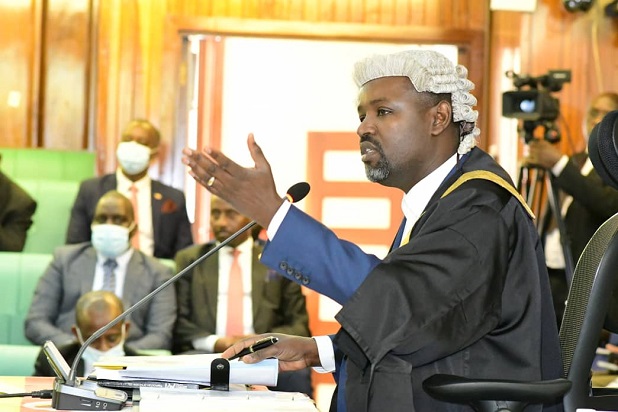Deputy Speaker, Thomas Tayebwa
Parliament is set to probe the high school dropout in primary schools after reports revealed that only 32% of the pupils enrolled for primary education were in position to complete Primary Leaving Education.
Deputy Speaker, Thomas Tayebwa tasked Parliament’s Committee on Education and Sports to probe the matter after a complaint made by Michael Bukenya (Bukuya County) who raised alarm on the failure of many students that enrolled for primary education in 2016 but couldn’t complete.
In his submission, Bukenya quoted figures from Uganda National Examinations Board (UNEB) that indicated that the pupils who joined P1 in 2016 were 1,880,000, only 832,000 registered in 2022 for PLE and 23,000 of them didn’t sit for the national examinations, yet out of 811,000 who sat,97,000 failed their examinations thus indicating a completion rate of only 38%.
“When you analyse, 62% of the pupils who registered in P1 after seven years are nowhere to be seen, so we have a challenge and my prayer is that your office instructs the Committee of Education to go to the field and also interact with the Minister of Education to establish the many factors that could have caused this and they bring a comprehensive report here for debate by Parliament and we work out a way forward,” said Bukenya.
Deputy Speaker instructed the Education Committee to carry out the investigation within one month and present their report before Parliament, before a final decision is taken.
The development comes at the time a November 2022 snapshot survey carried out by Save the Children in 6 countries where schools have reopened, shows that 18 months into the COVID-19 pandemic, up to 1 in 5 of the most vulnerable children have not returned.
Save The Children attributed the dropout rates not typically because of fear of the virus itself, but a direct result of child labour, child marriage, financial hardship, relocation and other consequences of the pandemic – and girls are particularly at risk. 1 in 5 children at schools we surveyed have not returned to school and are at risk of dropping out for good with potentially devastating consequences for their lives and their country’s future.
Carried out in 625 schools in Afghanistan, Ethiopia, Malawi, Nigeria, Somalia, and Uganda indicate that 50% girls weren’t returning after marrying early, 35% can’t afford schools fees, Children living in rural area 28%, Children whose parent(s)/caregiver(s) work long hours/migrant workers27% among other reasons and the agency warned of a ‘second wave’ of dropouts as returning students who have fallen behind in their learning fear they have no chance of catching up.





